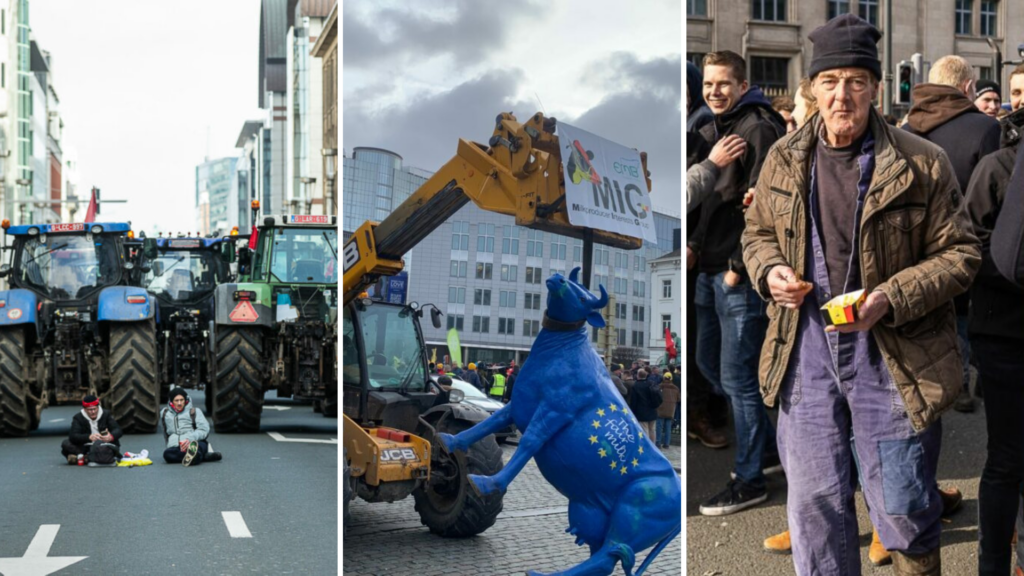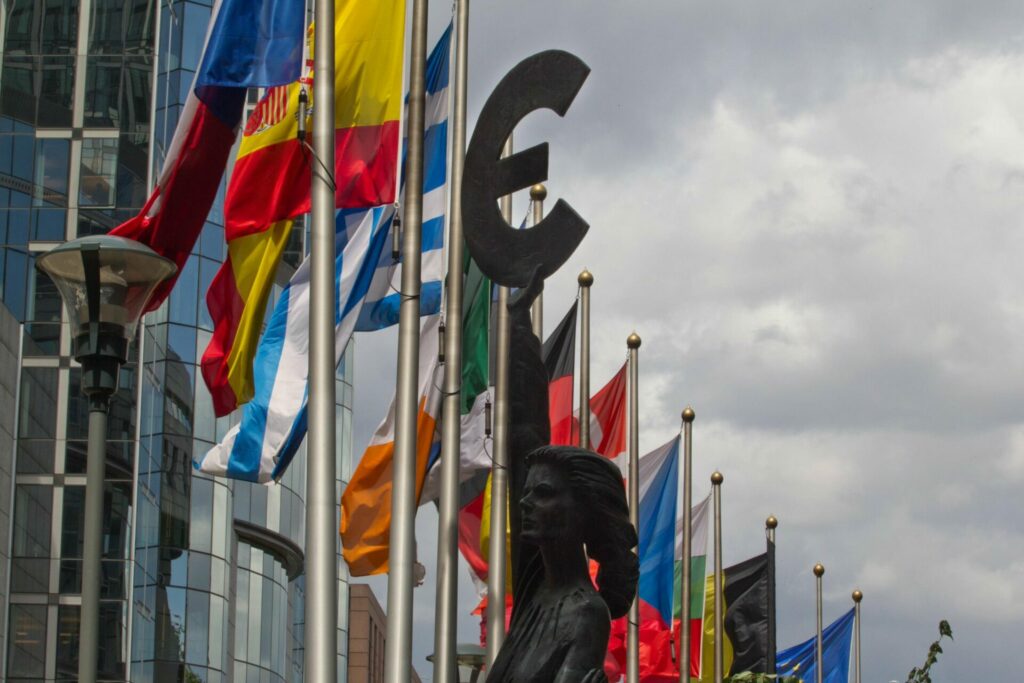The notion of farmers against the environment seems paradoxical – their livelihood is entirely dependent on the state of their land and farmers are broadly seen as custodians of the land. Our very conception of "nature" has been shaped by tractor and plough and decorated with animals living peacefully on the bucolic landscape (at least until they grow big enough to fill our appetite).
But the farming community feels increasingly at odds with the commercial and environmental imperatives of modern Europe, struggling to turn a profit as subsidies and tax breaks come with stricter requirements. Tensions have broken out across the continent this week as farmers led major protests in numerous Member States, putting their grievances on public display with major disruptions hit roads and rail routes.
Despite concerns varying country by country, the general ire went beyond national governments and towards the EU, whose "technocrats" were lambasted for a policy of "agricultural degrowth" and doctrine of "punitive ecology". Gathering in front of the European Parliament on Wednesday, unions hit out at the Green Deal, criticising emissions targets that make their occupation impossible. At the same time, they attacked the import of products that would not conform with EU standards if produced here.
The sense of unfair competition goes beyond external producers when the topic of pollution comes into play. In Flanders, efforts to bring down the region's nitrogen emissions have stirred political deadlock for months, as the limits would be too strict for some farms to comply. But whilst farmers are under the hammer, the sector rebukes the granting of permits for the petrochemical industry, which also pumps out nitrogen pollution.
Flanders finally got the nitrogen decree over the line but enraged farmers have sworn legal challenges, adding that the accord (such as it is) fails to look beyond the decade. That's assuming it would survive the election shake-up coming later this year.
And right now the prognosis for EU elections is a decisive turn to the right with Euroscepticism and climate scepticism riding the same wave. This has already been seen in the Netherlands, with policies of the far-right grafted to concerns that environmental ambitions will eradicate traditional ways of life.
Meanwhile in Wallonia – so often framed as the adversary of Flanders – farmers next week plan a series of actions against excessive administration, low wages and an erosion of standards. The demonstrations aim to win over the public, pushing the line that the sector's plight is an existential concern for society at large.
Belgium in Brief is a free daily roundup of the top stories to get you through your coffee break conversations. To receive it straight to your inbox every day, sign up below:
1. As good as it gets: Flanders approves highly contentious nitrogen decree
After months of negotiations, the Flemish Parliament has approved the amended nitrogen decree, which sets out limits on emissions of the gas. The agreement was called by the majority parties the "highest achievable" outcome. But farmers vow to take legal action against it. Read more.
2. Belgium's new tax regime for expats: What changes?
From this month, Belgium's former expatriate tax regime – available to foreign executives and researchers hired from abroad – no longer exists. This means that the approximately 27,000 expats affected will see significant changes in their financial and administrative situations. Read more.
3. Panoramic restaurant above Brucity will finally open its doors
The long-awaited opening of Brussels' panoramic restaurant has finally been announced, meaning the stunning skyline can soon be marvelled at every day, no matter the weather. Read more.
4. Belgian architecture and beer: Why ugly beats boring
In 2011, a photograph of a grey terraced house in Belgium with two incredibly pointed steeples – a house completely different from all the houses on the rest of the street – kicked off a project by media consultant Hannes Coudenys called Ugly Belgian Houses. Read more.
5. People are 'not ready': Investigation into Belgium's colonial past at a standstill
The Commission tasked with investigating Belgium's colonial past in 2020 never published a final report due to intense political disagreement. "Minds were not ready," committee chair Wouter De Vriendt (Groen) stated after another vote fell through on Monday. Read more.
6. Noise pollution: STIB to replace 1,000 'oval' wheels to stop vibrations in Brussels metro
For over two years, local residents on the routes of Brussels metro lines 1 and 5 have been complaining about persistent noise pollution. The cause of this noise – defective wheels – will gradually be resolved this year, public transport company STIB has announced. Read more.
7. Hidden Belgium: A bookcase toilet in Antwerp
The curious eighteenth-century Hofkamer lies hidden in the garden of a grand 18th-century Antwerp mansion called Den Wolsack. Abandoned for many years, the remarkable Hofkamer interior was finally restored and revealed to the public in 2017. Read more.


